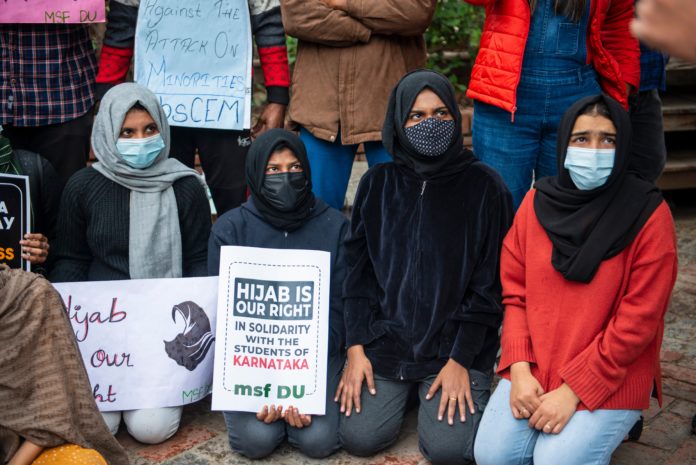
An Indian court has upheld a ban on the hijab in classrooms in the southern state of Karnataka, which is governed by the Hindu nationalist BJP.
“We are of the considered opinion that wearing of hijab by Muslim women does not form a part of essential religious practice,” Chief Justice Ritu Raj Awasthi of the Karnataka High Court said in a judgement on Tuesday.
He said the government had the power to prescribe uniform guidelines, dismissing various petitions challenging the order.
Students who had challenged the ban in court had said wearing the hijab was a fundamental right guaranteed under India’s constitution and an essential practice of Islam.
Tuesday’s ruling could set a precedent for the rest of the country, home to more than 200 million Muslims who make up about 14 percent of India’s 1.35 billion population.
Popular Front of India Chairman, O M A Salam, expressed deep disappointment over the Karnataka High Court judgment.
He said: “The judgment is against the spirit of constitutional values of fundamental rights and pluralism. The court’s insensitivity to the sentiments of Muslim women in the country who have held hijab as an integral part of their faith and identity is shocking. The court is setting a new precedent by interpreting religious texts against a practice that the majority of the believers have held valid as per their understanding of the texts of Islam. This cannot be accepted.
Subscribe to our newsletter and stay updated on the latest news and updates from around the Muslim world!
“The question was essentially about the fundamental right of Muslim women to wear the clothes of their choice, not what is essential or nonessential in Islam. In a democratic country, the right to interpret the text should have been left to believers…
“There is a valid concern that the judgment will be used as a validation for right-wing groups to continue to harass Muslim women over their choice of clothes. The Popular Front rejects this verdict and urges the community leaders to jointly explore legal and democratic options to challenge it.”
Karnataka’s hijab dispute began in January when a government-run school barred students wearing hijabs from entering classrooms, triggering protests by Muslims and counter-protests by Hindu students.
More schools and colleges in the state followed with similar bans and the state’s top court disallowed students from wearing the hijab until it delivered a verdict.
In India, the hijab has historically been neither banned nor limited in public spheres.





















